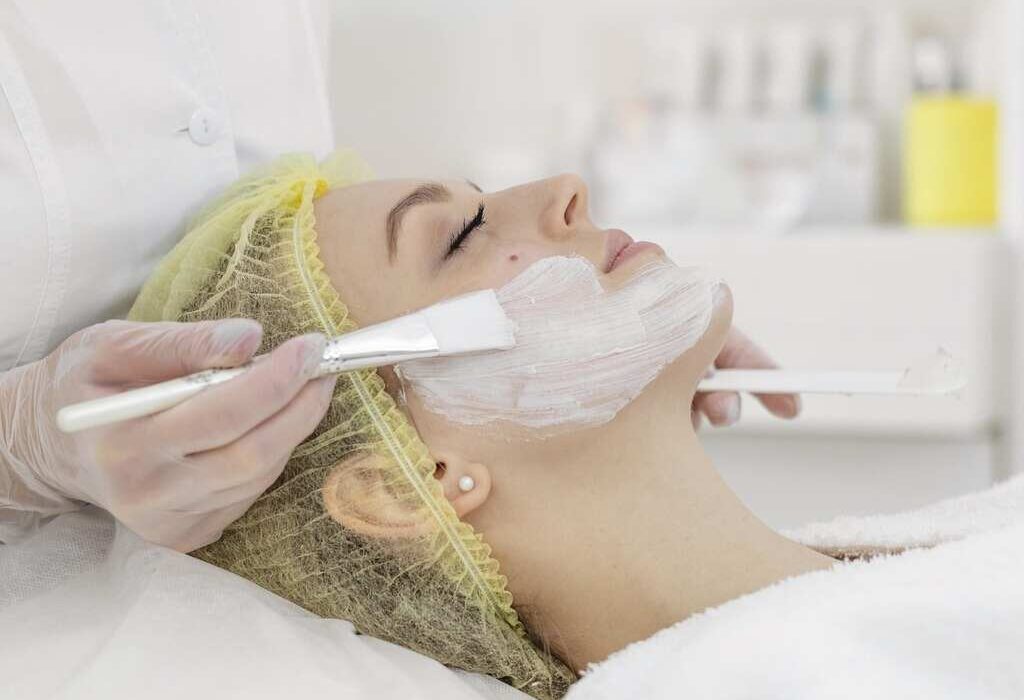skin whitening treatments are a popular option for those seeking a brighter and more even complexion. Nowadays, many of us dream of having healthy, glowing skin that makes us feel confident and refreshed. Whether you’re exploring natural remedies or professional treatments, this guide will provide you with all the essential information to make an informed choice.
Table of Contents
What Is Skin Whitening?
Skin whitening refers to methods designed to lighten dark spots, even out skin tone, and enhance overall skin brightness. It is often sought after to address hyperpigmentation, age spots, or melasma. However, it’s important to approach skin whitening treatments with caution, as not all methods are safe or effective for everyone.
Popular Skin Whitening Treatments
1. Natural Skin Whitening Remedies
Nature offers a variety of safe and effective solutions to lighten skin without harsh chemicals. Here are some top natural remedies:
Lemon Juice: Packed with Vitamin C, lemon juice is known to lighten dark spots. Mix it with water and apply it to the skin for 10-15 minutes.
Turmeric: This anti-inflammatory spice helps brighten skin and reduce pigmentation. Mix a bit of turmeric with milk or yogurt to create a simple, natural face mask.
Aloe Vera: Aloe vera gel soothes the skin while promoting an even complexion. Apply fresh gel directly to the face.
Pros: Safe, cost-effective, and chemical-free.
Cons: Results may take longer to appear.
2. Over-the-Counter Skin Whitening Products
Vitamin C: A fantastic antioxidant that helps brighten your skin and fade away pigmentation.
Niacinamide: Helps improve skin tone and reduces redness.
Alpha Arbutin: Known for its ability to target dark spots and brighten skin effectively.
When choosing over-the-counter products, look for dermatologist-approved formulations and avoid those containing harmful ingredients like mercury or hydroquinone.
Pros: Convenient and widely available.
Cons: Results vary based on skin type, and some products may cause irritation.

3. Professional Clinical Treatments
For faster and more noticeable results, clinical treatments are an excellent option. Some of the most popular methods include:
Chemical Peels: These involve applying a chemical solution to exfoliate the skin, reducing pigmentation and revealing brighter skin.
Laser Therapy: A highly effective option that uses laser technology to target and lighten dark spots or uneven skin tone.
Microdermabrasion: A gentle, non-invasive treatment that exfoliates the top layer of your skin, leaving it brighter and refreshed.
Pros: Immediate and long-lasting results when performed by professionals.
Cons: Higher cost and potential side effects like redness or sensitivity.
4. Skin Whitening Injections
Skin whitening injections, often containing glutathione, claim to lighten skin by reducing melanin production. While this treatment has gained popularity in some regions, its safety and long-term effectiveness are still debated.
Pros: Quick results in some cases.
Cons: Expensive and not always FDA-approved; risks include allergic reactions.
Things to Consider Before Choosing a Skin Whitening Treatment
1. Skin Type Matters
Understanding your skin type is crucial before starting any treatment. For instance, sensitive skin may react poorly to strong ingredients or invasive procedures. Talk to a dermatologist to find the best solution tailored to your skin’s needs.
2. Set Realistic Expectations
Skin whitening treatments can improve your complexion, but they cannot alter your natural skin tone entirely. Focus on achieving healthy, glowing skin rather than unrealistic standards of fairness.
3. Be Aware of Potential Risks
Some treatments, especially unregulated ones, can cause adverse effects like skin irritation, uneven pigmentation, or long-term damage. Always choose safe, dermatologist-recommended options.
Tips for Maintaining Healthy, Bright Skin
Regardless of the treatment you choose, maintaining good skincare habits is essential for lasting results.
Wear Sunscreen: Sun exposure is a major cause of pigmentation. Don’t forget to use a broad-spectrum sunscreen with SPF 30 or higher every day to protect your skin.
Stay Hydrated: Keep yourself hydrated by drinking plenty of water—it’s a simple way to keep your skin looking fresh and glowing!
Follow a Balanced Diet: Include fruits and vegetables rich in antioxidants and vitamins to promote skin health.
Exfoliate Regularly: Gentle exfoliation removes dead skin cells and allows bright, fresh skin to shine through.
Check for a better skin routine.
Ethical and Cultural Sensitivity
It’s important to address the cultural and societal pressures surrounding skin whitening treatments. Everyone’s natural complexion is beautiful, and treatments should be pursued for personal reasons rather than external expectations. Promote self-confidence and prioritize skin health over achieving a specific skin tone.
Skin whitening treatments range from natural remedies to professional procedures, offering solutions for various needs and preferences. The key to achieving the best results is to choose safe, effective methods that suit your skin type and align with your goals.
Remember, the ultimate goal is healthy, radiant skin—not perfection. By taking a thoughtful and informed approach, you can enhance your natural beauty and embrace your unique complexion confidently. If you’re considering skin whitening treatments, consult a dermatologist for personalized advice and recommendations.

Resources:
https://www.dnaskinclinic.in/blog/skin-whitening-treatment







